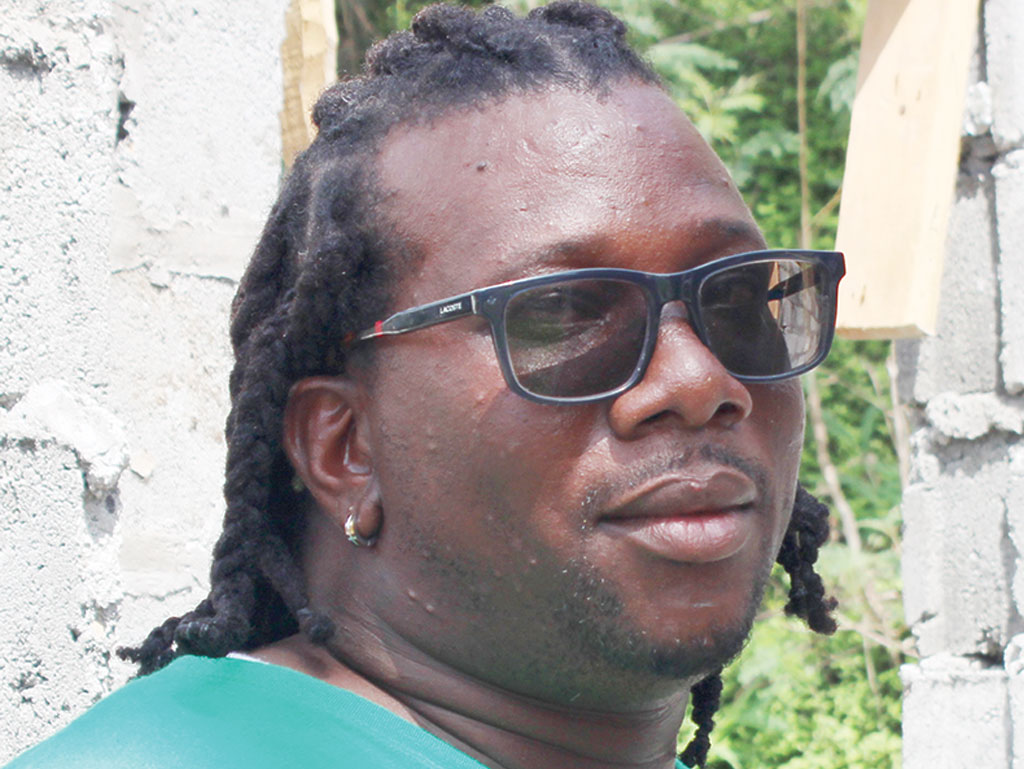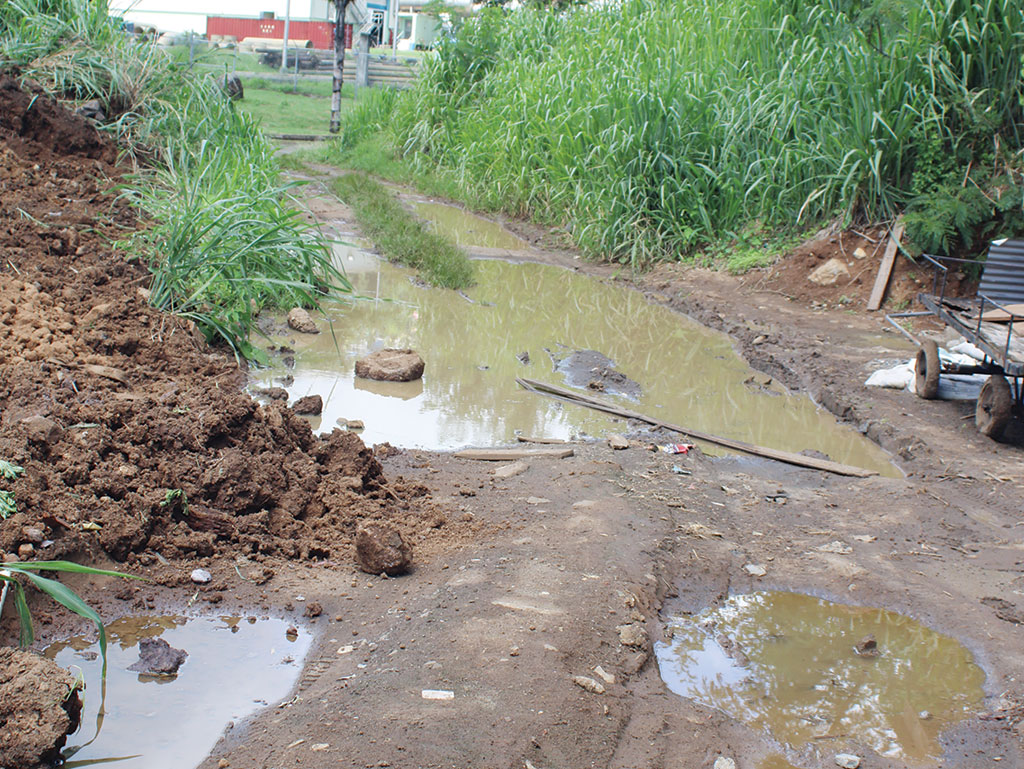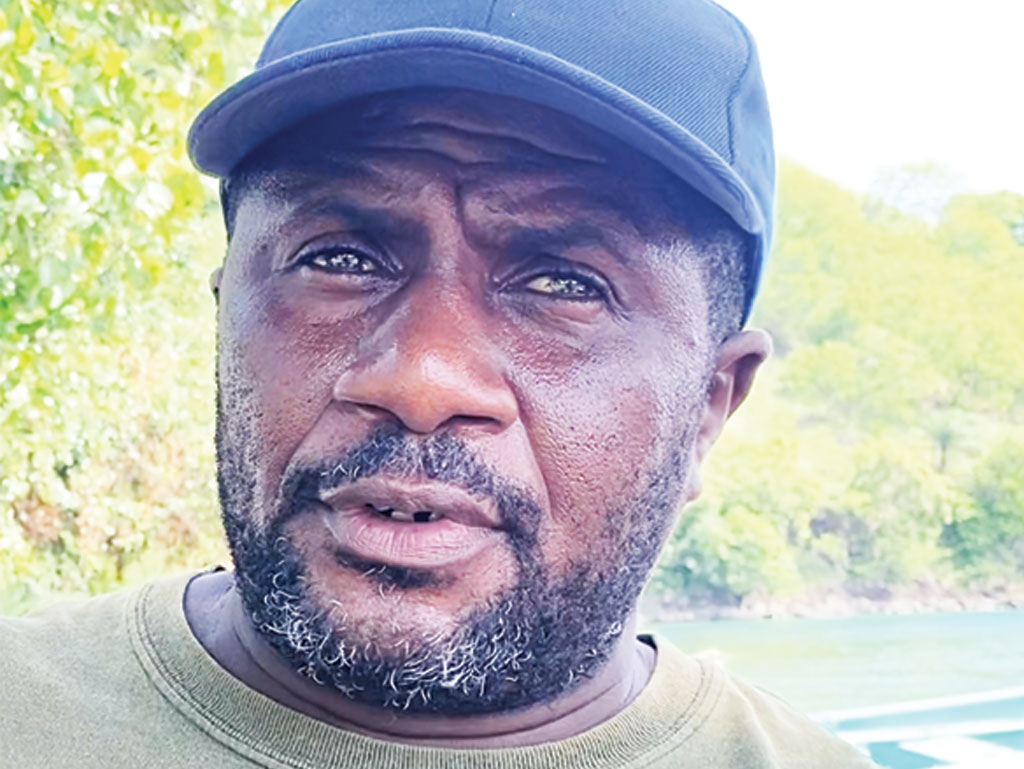Fishermen trying to set up operations at Lowmans Bay after being displaced from Rose Place are highlighting an urgent need for water, electricity, a paved road and wash rooms at their new locale.
Construction of storerooms is a laborious process without water the fisherfolk say.
“What I’m seeing here in Lowmans Bay could be progress. I’m not against it, I’m fully supportive of it because our country could develop and strive,” commented Winsbert Harry, President of the National Fisherfolks Organisation, on Monday, August 15, “…so if that we had to relocate from Rose Place to Lowmans Bay I think it’s something that we have to abide with.”
An estimated 38 fisherfolk have been dislodged by the impending Port Modernization Project in preparation for construction of the EC$600 million dollar port being built at Rose Place.
“…No fishing activity will be conducted in Rose Place during the Port Modernisation Project and Lowmans Bay is going to be the new fishing village,” Harry explained.
The fisher folk initially fought to be relocated to Edinboro, but there were financial challenges associated with this, he said.
Therefore, they realized that “the easiest process is to encourage the fisherfolk to come to Lowmans Bay.”
The President said he had meetings with the port project team and they accepted the idea of bringing the fishermen there and they cooperated with them.
The relocation is now at the stage where the fishermen are constructing storerooms.

Deep sea fisher and boat owner Ramon Horne
The construction is apparently being done using money from the compensation packages that were given to boat owners, the minimum of which was $18,000. However, Harry mentioned that although close to $3000 of this amount was allotted to the storeroom, it costs around $7000 to build a concrete structure.
In terms of their immediate concerns, he explained, “Where we were in Rose Place we had light, we had water, and what I’m seeing in Lowmans Bay now, we have no light, there is no water and it’s been a challenge to the fisherfolk because we have to take water to sea and we have to construct these (storerooms).”
“I do not want Lowmans Bay to come a Rose Place. Because in Rose Place we have thousands of challenges that we could speak about and challenges that we cannot speak about,” the President also noted.
“I’m really appealing as a fisherman. I’m not a boat owner. I’m really appealing for the assistance that fisherfolks could get water. We really in the need of water. Because when we leave we …[have] nowhere to fill up our water jug to go to sea,” Harry reiterated.
“We ha nowhere to fix the concrete, we have nowhere to mix nothing. If we come down here and we decide to work a Sunday or weekend we cannot use the wash room,” he added.
“..It ain’t really in the best sanitary condition to be honest with you,” he commented.

Difficult road conditions are present
There are also difficulties with bringing material to the site because the track is in a bad state.
During the interview the President also touched on the need for a general building.
Showing an unfinished building near to the Lowmans Bay beach, Harry said he requested that the authorities complete it for the purpose of installing wash rooms, a tackle shop, and office space for the National Organization.
However, Harry is not the only one issuing this cry.
Deep sea fisher and boat owner Ramon Horne relocated about two months ago and is constructing a structure to store gear.
“…The problem we’re facing is that we don’t have no water. We’re barely getting some water from when the rain come to actually mix up and run up blocks. Because you can’t build a wall structure and you don’t have water,” he said. Lighting is also needed, Horne said.
“And the other big issue that we have, they relocate us but I did not see them give us any facility in terms of washroom cause you cannot be going fishing and coming off (the sea) and you don’t have a shower,” he said, “You cannot jump somebody van smelling of fish, you know? And if you wanna use number two, number one, you can’t just go in the bush and just do it.”
All in all, the veteran concluded, “Fishing ain’t easy. It ain’t easy but you know when you have to feed a nation you have to be serious about it and I believe they should treat fisherman much better than how they’re treating us.”
“…We’re going out there every single day and risking our life because when you jump on your boat you’re don’t know if you’re coming back home. The least little problem could happen out there and it does happen many times,” the fisherman added.
Another fisherman, Lenford Jack, stated “If you look at the situation that you’re building there, we don’t have no light, we don’t have no road, no water. So we are we own.”
He noted, “I don’t understand how the Prime Minister saying he did not leave fishermen stranded…”
“…When Winsbert and the other rest of the guys get this piece of land here we tell weself that they would at least put the water there that we could able to mix up the cement and concrete the road for us,” Jack said.
“…The first infrastructure they should put is the light and the road and the water. For at least fisherman could able to ease up they self. You get the water there. And then when the project finish now, when everybody finish, you able to connect your own water so you pay for your own water but at the meantime you coulda put one pipe that everybody coulda come in and use the water,” he reasoned.

Fisherman, Lenford Jack
At a press conference on Tuesday Prime Minister Dr Ralph Gonsalves was asked to respond to these concerns.
He spoke of a plan that was laid out.
“We had always told the fishermen that ‘you will do something temporarily there but we will do things in accordance with this design which is there’” the Prime Minister noted and that the project was under Minister of Seaports Julian Francis, who recently fell ill and is still recovering.
The Prime Minister said he would consult with the assistant project manager for the port project, Lensky Douglas, on whether there was someone assigned to do the build out.
“I can imagine that they would have some transitional difficulty,” Gonsalves also said, “….it’s a practical problem I’m sure they’re facing and I will attend it.”

